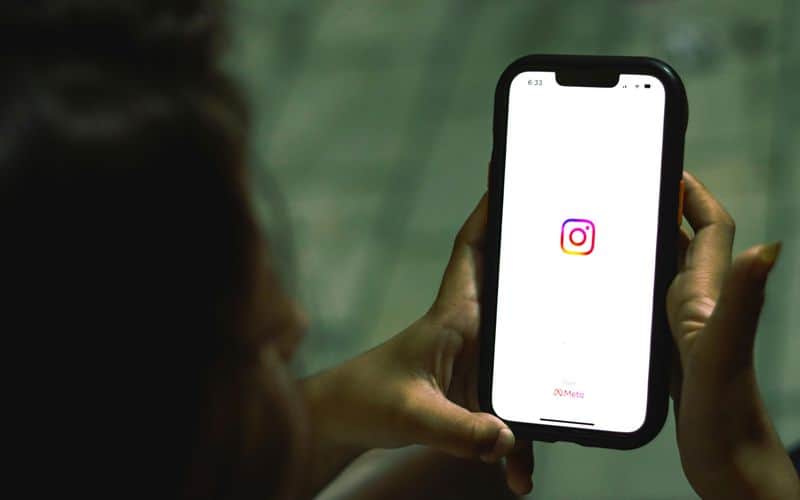Breaking up hurts, but some habits can make the pain last longer than it should. When your heart is broken, it’s easy to fall into behaviors that keep you stuck in the past instead of moving forward.
Understanding these common pitfalls can help you avoid them and heal faster. Let’s look at ten habits that might be keeping you tied to your ex and slowing down your recovery.
1. Social Media Stalking
Every time you check your ex’s profile, you’re reopening the wound. Those late-night scrolling sessions through their photos and updates create a false sense of connection that keeps you emotionally invested.
Your brain gets a tiny dopamine hit when you see their name, but it’s followed by a crash that leaves you feeling worse. This digital connection prevents your heart from understanding the relationship is truly over. Try a 30-day social media detox instead.
Unfollow, mute, or block if necessary – it’s not petty, it’s protective. Your healing journey needs space away from constant reminders of what used to be.
2. Keeping in Touch
“Let’s stay friends” might sound mature, but it rarely works right away. Regular texts, calls, or meetups create a confusing gray area where boundaries blur and feelings linger.
Each conversation becomes a tiny thread keeping you connected, making it impossible to truly separate your life from theirs. You find yourself analyzing their tone or waiting for their messages, maintaining an unhealthy emotional dependence.
A period of no contact isn’t mean – it’s necessary medicine for your heart. Give yourself at least three months of complete separation before considering any kind of friendship. Your future self will thank you for this difficult but crucial boundary.
3. Romanticizing the Relationship
Memory plays tricks after a breakup. Suddenly, all you remember are perfect dates, inside jokes, and how they made you feel special. The arguments, incompatibilities, and reasons you broke up fade into the background.
This selective memory creates an idealized version of your ex and the relationship that never actually existed. You find yourself comparing new people to this perfect but fictional standard. Try writing down the real reasons the relationship ended whenever nostalgia hits.
Balance those happy memories with the complete picture – including the parts that didn’t work. Honest reflection helps your heart accept reality instead of clinging to a fantasy that keeps you stuck.
4. Bottling Up Emotions
“I’m fine” becomes your automatic response, but inside, unexpressed feelings are piling up. Pushing down grief, anger, or confusion might seem like strength, but these emotions don’t just disappear when ignored.
Unprocessed feelings become emotional landmines that explode at unexpected moments or transform into physical symptoms like headaches, insomnia, or stomach problems. Your healing gets delayed while these emotions wait in the shadows.
Find safe outlets for expression – journal about your feelings, cry when you need to, or talk with someone who won’t judge. Emotions are like waves – they’re most powerful when you fight against them instead of letting them flow through you.
5. Cutting Off Support Systems
When friends ask how you’re doing, you cancel plans and stop returning calls. Shame about the breakup or fear of being a burden makes isolation seem easier than connection.
The problem? Loneliness amplifies heartbreak and distorts your perspective. Without outside viewpoints, you can spiral into negative thought patterns without anyone to provide reality checks or comfort. Force yourself to accept at least one social invitation weekly, even when you don’t feel like it.
Share your feelings with trusted friends who’ve weathered their own breakups. Human connection is medicine – studies show social support significantly speeds emotional recovery after relationship loss.
6. Playing the Blame Game
“If only I had been better, things would have worked out.” This thought loop keeps you trapped in guilt and shame instead of moving forward.
You mentally replay conversations and decisions, convinced you could have saved the relationship. Excessive self-blame damages your self-esteem and prevents you from seeing the breakup realistically. Relationships involve two people, and their endings rarely come down to one person’s actions.
Replace blame with curiosity about what lessons this relationship taught you. What patterns do you notice? What boundaries might you need in future relationships? This perspective shift transforms painful rumination into valuable self-knowledge that actually helps you grow.
7. Rebounding Too Quickly
Meeting someone new creates an intoxicating distraction from heartbreak. The attention feels like medicine for your wounded ego, and the excitement temporarily masks the pain of your recent loss.
But rushing into another relationship before processing your feelings is like putting a bandage over a wound that needs air to heal. You bring unresolved baggage into the new connection, often repeating patterns or using the new person as an emotional crutch.
Give yourself the gift of being truly single for a while. Rediscover who you are outside of a relationship, rebuild your individual identity, and heal properly. When you eventually date again, you’ll bring your whole, healthy self – not just your unhealed parts looking for someone to fix them.
8. Surrounding Yourself with Reminders
Their sweatshirt still hangs in your closet. The playlist you made together plays on repeat. That coffee mug they gave you sits prominently on your shelf. Each item triggers memories and keeps emotional wounds fresh.
Physical reminders create constant environmental cues that pull your mind back to the relationship. Your brain can’t distinguish between seeing their belongings and actually being with them – both activate the same emotional pathways.
You don’t need to burn everything, but consider a “reminder box” where you store meaningful items until you’ve healed. Clear your living space of obvious triggers that keep you looking backward instead of forward. Your environment shapes your mindset more than you realize.
9. Numbing with Distractions
Suddenly, you’re always busy – working late, binge-watching shows, drinking more than usual, or shopping excessively. These distractions create temporary relief but solve nothing.
While healthy distractions have their place, using them constantly prevents necessary emotional processing. The pain waits patiently for your attention, often growing stronger in the background while you exhaust yourself trying to outrun it. Balance distraction with reflection.
Set aside specific times to feel your feelings – maybe 30 minutes daily to journal or process emotions – then give yourself permission to engage in positive activities. This structured approach helps you heal without becoming overwhelmed or stuck in avoidance patterns.
10. Rejecting Professional Help
“I can handle this on my own” becomes a stubborn mantra, even as weeks turn into months with little improvement. Pride or stigma keeps you from seeking the support that could actually help you move forward.
Some breakups hit harder than others, especially if they trigger old wounds or come after particularly meaningful relationships. When grief becomes prolonged or interferes with daily functioning, professional guidance can provide crucial perspective.
Therapy isn’t admitting defeat – it’s giving yourself expert navigation through difficult emotional terrain. A good therapist offers tools to process feelings, identify unhelpful patterns, and build resilience for future relationships. Even a few sessions can significantly accelerate healing that might otherwise take years.











